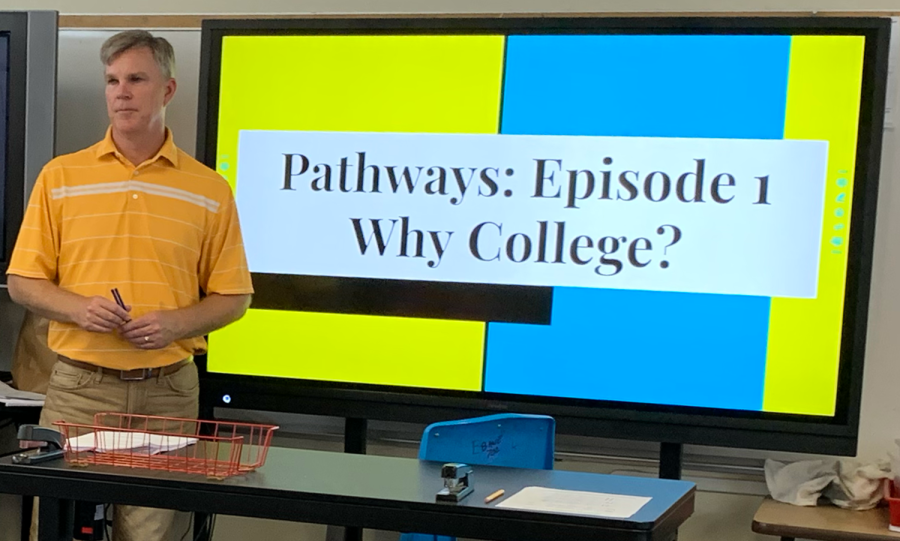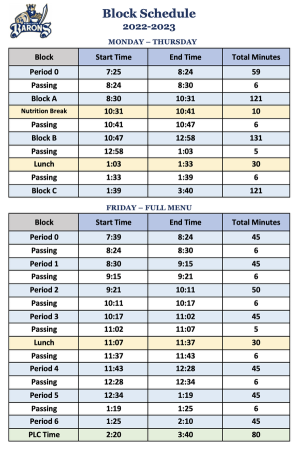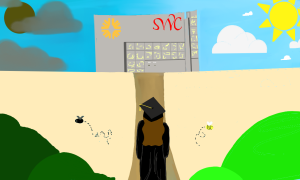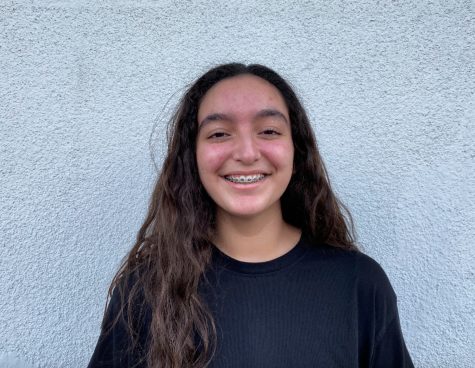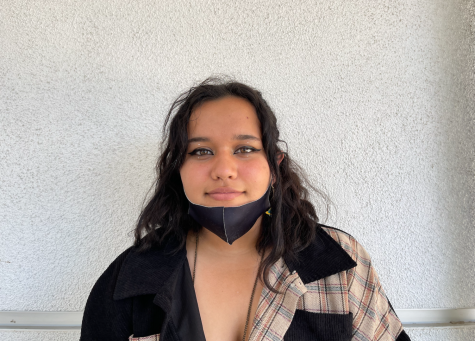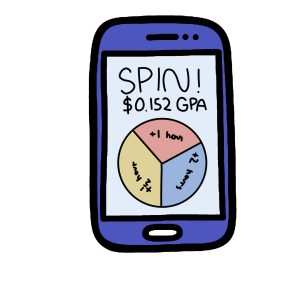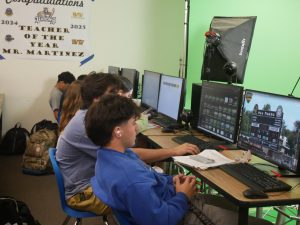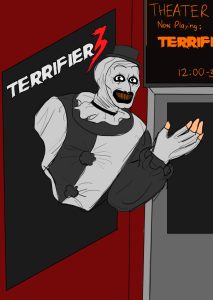Just within an arms reach
New CARPE program opens doors and students’ minds to the possibility of college
AP English Language and Composition teacher Brian Bane takes his class through episode one of the CARPE course. In this episode, students fill out a google form about the support systems that are helping them prepare for college.
May 9, 2022
From April 20 to 22, English teachers presented a cumulative review and college preparation course to Bonita Vista High (BVH) juniors. The course was funded by the CARPE College Access Network grant that BVH received prior to the pandemic.
The course consisted of six “episodes.” Each episode talked about different introductory aspects of college:
- Why college?
- Building my balanced college list
- Making college affordable
- Submitting my college applications
- Understanding my financial aid
- Transitioning to college
Teachers presented these topics to their classes during two hour block periods and were able to finish by the end of the last week of block schedule.
Advancement Via Individual Determination (AVID) teacher Jessica Vargas is an organizer and aid to the CARPE’s new project propositions. Vargas helped plan the college preparation course given to juniors that has been two years in the making. The 2022 academic school year is the first full year the course has been active since the CARPE team started the project two years ago.
“We all understand that everyone may not go but we do want them to have that option so there’s definitely a need, there’s always been a need at schools I’ve been to. Any extra support that can be given towards getting students aware and prepared is always appreciated,” Vargas said.
The college course is usually focused on latinx, black and native american students from low income backgrounds. However, because BVH is a title one school, the college preparation course was offered to the entire junior class.
For students who grew up in college-going families like juniors Stephanie Ling and Lannah Garcia, they did not find anything particularly valuable in the lessons.
“I feel like a lot of times teachers talk about how important college is,” Garcia said. “This CARPE program actually immerses you, forcing you to choose colleges. The CARPE program has shown you that it’s affordable and it has everything you want to go to you can actually make there.”
While Ling mentioned that the presentation talked about the aspects of college that she already knows, she acknowledges that “you don’t know what you don’t know.” This is only one of the projects that BVH has implemented to promote their college going culture to students.
“I think this process is something that students are supposed to take initiative [in]. The school gives some resources like the presentation and there’s a lot of counselors who can help guide you, and teachers who can help guide you on college plans,” Ling said.
On the other hand, junior Kai Bonggat found the program to be helpful. While he already has an idea of what to do after high school, the preparation courses advertised other possible options. He described the program as an easy way to excite students about college.
“I found it really helpful,” Bonggat said. “It’s really hard to determine which college you want to go to, because there are so many different options, and there are also a lot of good colleges that aren’t talked about. So it’s hard to find information on those, so the program was really eye opening in that area.”
While there was no set deadline or schedule for teachers to follow, the main objective of the college preparation courses is to spread awareness to students that a four year college is a viable option after high school. Vargas says that this project is only one part of a bigger picture that involves the inclusion of lower grades to the program.
“Personally, I want everyone to be able to see themselves at college and I try to help them find that college that fits them,” Vargas said. “I believe over the next few years CARPE is gonna leave a really big impact on students who are not in AVID and not in AP or IB courses.”

